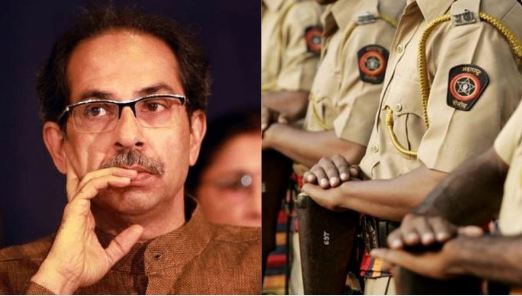Mumbai Police is arguably India’s most famous/infamous police, thanks to its regular portrayal in Bollywood films. In the 1980s, the police had a very negative image because the gangsters like Dawood Ibrahim and Arun Gawli dominated the city. However, in the mid-1990s, the newly elected Shiv Sena-BJP government gave a free hand to the police in dealing with the gangsters and organised crime.
The city police were transformed into one of the most professional and competent police forces in the country, and the series of encounters as well as the end of organised crime enhanced the image of the Mumbai Police. However, in the last year, the Uddhav government seems to have destroyed the image of Mumbai Police by politicising a very competent and professional organisation.
From the arrest of Arnab Goswami in the TRP case to the lynching of Sadhus in Palghar, the Uddhav government kept its politics above the image of the Mumbai Police. The shady investigation of the Sushant Singh Rajput case (including Param Bir Singh’s reluctance to file FIR), to the arrest of Sameet Thakkar and Sunaina Holey for online criticism of the Uddhav government, Mumbai Police has been under the scanner many times in the last one year, despite the fact that a major portion of this time was spent under lockdown.
The politicisation of Mumbai Police started with the appointment of Param Bir Singh as the police commissioner of the city. Hemant Nagrale, a 1987 batch IPS officer, who has now replaced Param Bir Singh, was the rightful heir to the position of the police commissioner, but Sharad Pawar is said to have told Uddhav Thackeray to supersede him for Param Bir Singh. Param Bir Singh had handled many politically sensitive cases when the Congress-NCP alliance was in power in the state between 1999 to 2014.
In 2008, Singh, the then additional commissioner of the Anti-Terrorism Squad, investigated the Malegaon bomb blast case and arrested two prime accused—Sadhvi Pragya Singh Thakur and Lt. Col. Prasad Purohit— and he purportedly helped the Congress-NCP government frame wrong charges and to build the myth of ‘Hindu terrorism’. As per various claims, Param Bir Singh physically tortured Sadhvi Pragya while she was in custody and falsely implicated her in the case.
In the very first big case – Sushant Singh Rajpur alleged suicide case – that Param Bir Singh got as the Commissioner of Mumbai Police, he was soon accused of hesitating to file an FIR. A big controversy arose over the fact that an FIR was not filed in such a high-profile case. Moreover, he also junked the Disha Saliyan case in the dustbin, despite the fact that links between her death and Rajput’s alleged suicide were emerging.
Just a few months after, he got another chance to prove his loyalty to Maharashtra’s political leadership with the controversial arrest of Arnab Goswami. Sachin Vaze, the police officer who has been arrested by NIA in the Mukesh Ambani bomb-scare case, acted like a henchman for him. The two enjoyed such bonhomie that Vaze used to directly report to Param Bir Singh, bypassing his immediate boss Milind Bharambare.
The appointment of Vaze itself was a very political move because he was suspended from the duty for alleged murder and destruction of evidence in the custodial killing of a 27-year-old engineer Khwaja Yunus in 2004. After that, he joined Shiv Sena and the party reinstated him last year on the accord of there being a shortage of human resources during the Coronavirus pandemic.
However, Vaze was no ordinary police official who was reinstated to fill the resource crunch. Within the days of reinstatement, he was handling some of the most important cases of Mumbai Police, from the arrest of Arnab Goswami in the Anway Naik suicide case to the Dilip Chhabria case to the Hrithik Roshan fake e-mail case.
Both Param Bir Singh and Sachin Vaze were more of political appointees rather than professional ones, and both seem to have helped the party to solve its political motives. However, this has led to irreparable damage to the public image and professional competency of Mumbai Police.
